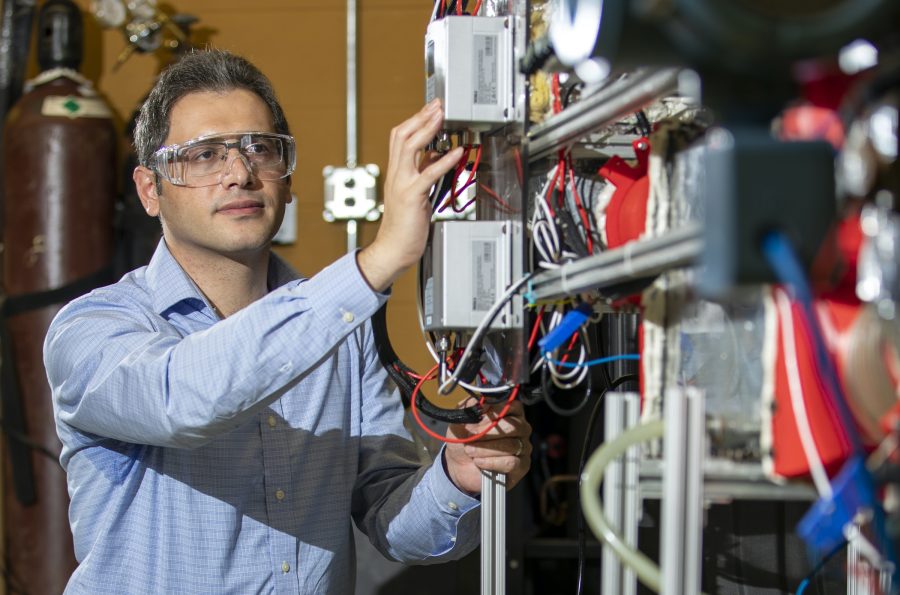
Sajjad Bigham, an assistant professor of Mechanical Engineering-Engineering Mechanics at Michigan Tech, is working to improve the solar desalination process with funding from the Solar Energy Technologies Office (SETO) of the US Department of Energy (DOE). The project is a part of “The American-Made Challenges: Solar Desalination Prize”—a four-stage competition designed to accelerate the development of low-cost desalination systems that use solar-thermal power to produce clean water from salt water.
Bigham’s concept for a portable desalination device advanced from the first stage of competition with 160 teams into the Innovation Stage with 19 teams—winning $50,000. Teams were further winnowed in the next phase, Round 2, down to 8 teams—each securing additional funding of $350,000 from the DOE.
“If teams in the competition are successful, we could not only address some emerging water challenges here in the US, but also contribute to the global fresh water shortage crisis in other countries,” says Bigham. “Water security is a challenge globally.”
Bigham’s portable device is particularly tuned to treat brines with high concentration levels. “Currently, if brine concentrate exceeds a certain level in traditional membrane desalination processes, the membrane fails to operate. Right now we’re working on a small prototype system in a lab environment,” he adds. “We’ll conduct testing with a solar collector, as well, and obtain field test data as we work toward the next phase of the competition.”
Bigham joined Michigan Tech as a faculty member in 2016, and serves as director of the Energy-X Lab (short for “Energy eXploration Laboratory”) at Michigan Tech.
“No matter what research we are doing, I hope it positively impacts my students’ emotional intelligence and personal growth,” he shares. “Students in my lab work incredibly hard under various expectations to overcome technical challenges, meet project timelines, and communicate effectively with our research partners,” he shares. “They know they need to deliver challenging milestones, and in the process they learn how to manage stress when their progress is not smooth.”
“The final goal of our research is to positively impact peoples’ lives. It’s why we work on commercially viable technologies and it’s how our research can deliver a positive impact.”